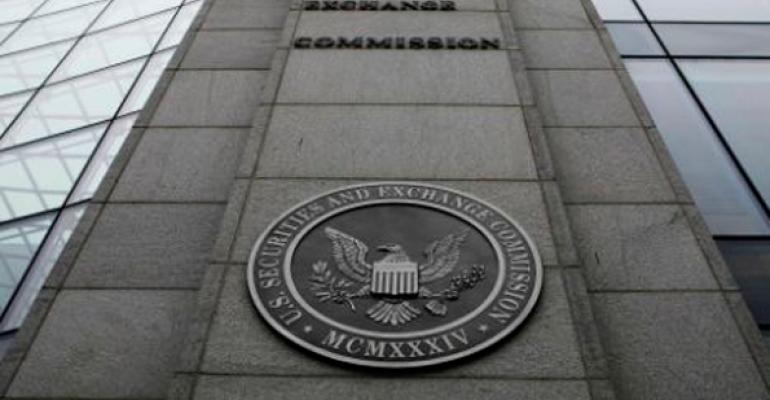The Securities and Exchange Commission has settled its first charges related to its amended marketing rule. The violation centers on a fintech investment advisor that allegedly made misleading statements in marketing materials touting hypothetical performance metrics related to its crypto strategy.
As a result of settling charges with the commission, New York-based robo-advisor Titan Global Capital Management will submit to a censure, a cease-and-desist and pay more than $1 million in collective disgorgement and penalties.
The charges underscored the need for registrants to make sure their disclosures to investors were accurate when offering and marketing complex strategies, according to Osman Nawaz, the head of the enforcement division’s Complex Financial Instruments Unit.
“The Commission amended the marketing rule to allow for the use of hypothetical performance metrics but only if advisers comply with requirements reasonably designed to prevent fraud,” he said. “Titan’s advertisements and disclosures painted a misleading picture of certain of its strategies for investors.”
Titan’s been registered with the commission since December 2017, and has more than $548 million in managed assets as of the end of March and more than 52,000 account-holders, according to the SEC. The RIA offered seven different “Titan Strategies” (including a crypto option) to retail investors through a mobile app.
The SEC finalized amendments to its marketing and ad rule in late 2020, and it went into effect in May of the following year. The rule dictated when and how advisors could use testimonials and endorsements in advertising, as well as performance metrics registrants can use in marketing materials (particularly curtailing the times and ways in which firms can use hypothetical performance to promote their services).
Though firms had until November 2022 to comply, Titan began following the amended rule in June 2021, including the mandates that hypothetical performance was prohibited unless the firm adopted and implemented policies “reasonably designed to ensure that the hypothetical performance [was] relevant to the likely financial situation and investment objectives of the intended audience,” among other stipulations.
But according to the commission, the firm didn’t adopt its procedures to make sure its hypothetical performance metrics complied with the rule.
In particular, the firm’s website boasted that its crypto strategy had an “annualized return” of 2,700%. But the firm didn’t adequately disclose in the ads the information that showed the limits of its hypothetical performance projections.
Among other things, Titan didn’t disclose the projection was based on a hypothetical account with no actual trading and that the return had been extrapolated from a three-week period, which showed a return of 21%.
To get the 2,700% annualized return figure, Titan assumed its crypto strategy would supply the same amount of returns every three weeks for the entire year, according to the SEC. The additional information spelling out the hypothetical performance calculation (and its limits) was not in the ads themselves, but only accessible through embedded links labeled as “disclosures” and “track record” in the ad’s fine print.
“Even though Titan directed the advertisement to a mass audience, the advertisement itself included no information to alert retail investors of the necessity of clicking on the embedded links to view vital information about the criteria, assumptions, risks, and limitations of the hypothetical performance results Titan advertised,” the charges read.
The commission also claims Titan made conflicting client disclosures about how it custodied its crypto assets, including language in its client advisory agreements falsely hinting that clients waived non-waivable courses of action against the firm, that it failed to adopt policies for employee personal trading in crypto assets and that Titan failed to get necessary client signatures on certain transaction types.
The commission acknowledged Titan had “voluntarily undertaken remedial measures” to improve its compliance policies since July of last year, including hiring a new chief compliance officer and chief legal counsel, conducting internal audits of its billing and advertising procedures (in doing so, the firm found and self-reported the aforementioned issues of client signatures).
In a statement, Titan said that it had “fully cooperated” with the SEC’s inquiry, and that it continued to “make significant investments to build and enhance its compliance program.” In total, the firm will pay $192,454 in disgorgement, $7,598 in prejudgment interest and civil penalties totaling $850,000.
Carlo di Florio, a global advisory leader with the compliance consulting firm ACA Group, called the action a “shot across the bow” for the industry and expected similar cases to follow, particularly in the area of performance (and hypothetical performance metrics in particular).
Di Florio also expected cases concerning firm’s ability to substantiate any statements of material fact included in marketing, and surmised SEC examiners would be poring over firms’ marketing materials for such facts.
“If you can’t substantiate it, then the default assumption is it’s a violation,” di Florio said about his expectation of the commission’s position. “So, that’s a new standard.”




